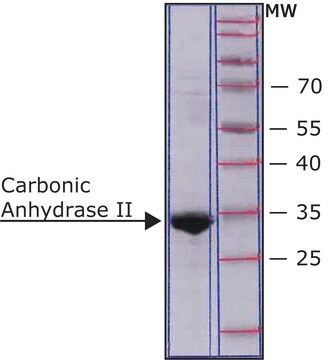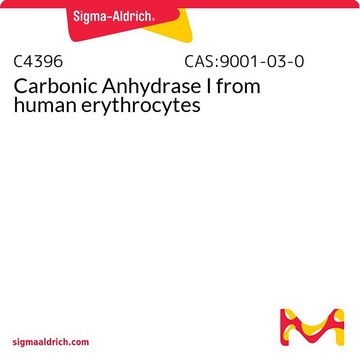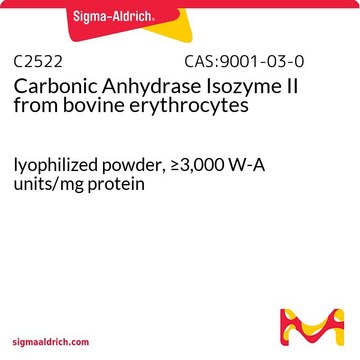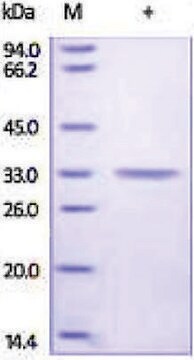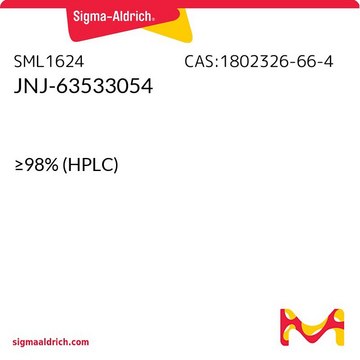SRP6484
Carbonic Anhydrase 2/CA2 human
recombinant, expressed in HEK 293 cells, ≥95% (SDS-PAGE)
Synonyme(s) :
CA-II, CAII, Car2
About This Item
Produits recommandés
Source biologique
human
Produit recombinant
expressed in HEK 293 cells
Étiquette/Marqueur
6-His tagged (C-terminus)
Pureté
≥95% (SDS-PAGE)
Forme
lyophilized
Poids mol.
calculated mol wt 30 kDa
observed mol wt 30 kDa (DTT-reduced. Ser 2 is the predicted N-terminal .)
Conditionnement
pkg of 10 μg
pkg of 50 μg
Impuretés
<1 EU/μg endotoxin (LAL test)
Numéro d'accès UniProt
Conditions d'expédition
wet ice
Température de stockage
−20°C
Informations sur le gène
human ... CA2(760)
Description générale
Application
Actions biochimiques/physiologiques
Forme physique
Reconstitution
Mention d'avertissement
Warning
Mentions de danger
Conseils de prudence
Classification des risques
Eye Irrit. 2
Code de la classe de stockage
11 - Combustible Solids
Classe de danger pour l'eau (WGK)
WGK 3
Point d'éclair (°F)
Not applicable
Point d'éclair (°C)
Not applicable
Certificats d'analyse (COA)
Recherchez un Certificats d'analyse (COA) en saisissant le numéro de lot du produit. Les numéros de lot figurent sur l'étiquette du produit après les mots "Lot" ou "Batch".
Déjà en possession de ce produit ?
Retrouvez la documentation relative aux produits que vous avez récemment achetés dans la Bibliothèque de documents.
Notre équipe de scientifiques dispose d'une expérience dans tous les secteurs de la recherche, notamment en sciences de la vie, science des matériaux, synthèse chimique, chromatographie, analyse et dans de nombreux autres domaines..
Contacter notre Service technique
